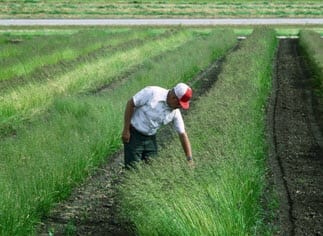 Agriculture insurance is becoming a major issue in the U.S. Federal legislators are currently working on a new bill that would reform the crop insurance system, but have yet to define any major benefits that should be awarded to farmers. U.S. Agriculture Secretary Tom Vilsack has issued recommendations to lawmakers, noting that more emphasis should be put on natural disasters and other environmental factors when reforming the insurance system. Vilsack believes that farmers will benefit most from policies that help them recover from extreme flood events or severe droughts.
Agriculture insurance is becoming a major issue in the U.S. Federal legislators are currently working on a new bill that would reform the crop insurance system, but have yet to define any major benefits that should be awarded to farmers. U.S. Agriculture Secretary Tom Vilsack has issued recommendations to lawmakers, noting that more emphasis should be put on natural disasters and other environmental factors when reforming the insurance system. Vilsack believes that farmers will benefit most from policies that help them recover from extreme flood events or severe droughts.
An expansive bill was passed in 2008 concerning the issue. The bill cost more than $280 billion and established a direct payment system that provided subsidies to farmers regardless of their production level. The bill is set to expire in September 2012, and many agriculture groups have begun advocating the abolishment of the direct payment system in favor of improved crop insurance. Vilsack too echoes the move away from direct payments, saying that insurance is a better form of protection in the event of natural disasters.
Better crop insurance measures will also save the nation some money. With insurance, the money is used only when absolutely necessary, as opposed to the guaranteed income currently allowed to farmers. Vilsack suggests that comprehensive insurance coverage would be a better shield against disasters because the insurance industry will have more access to funds and resources.
